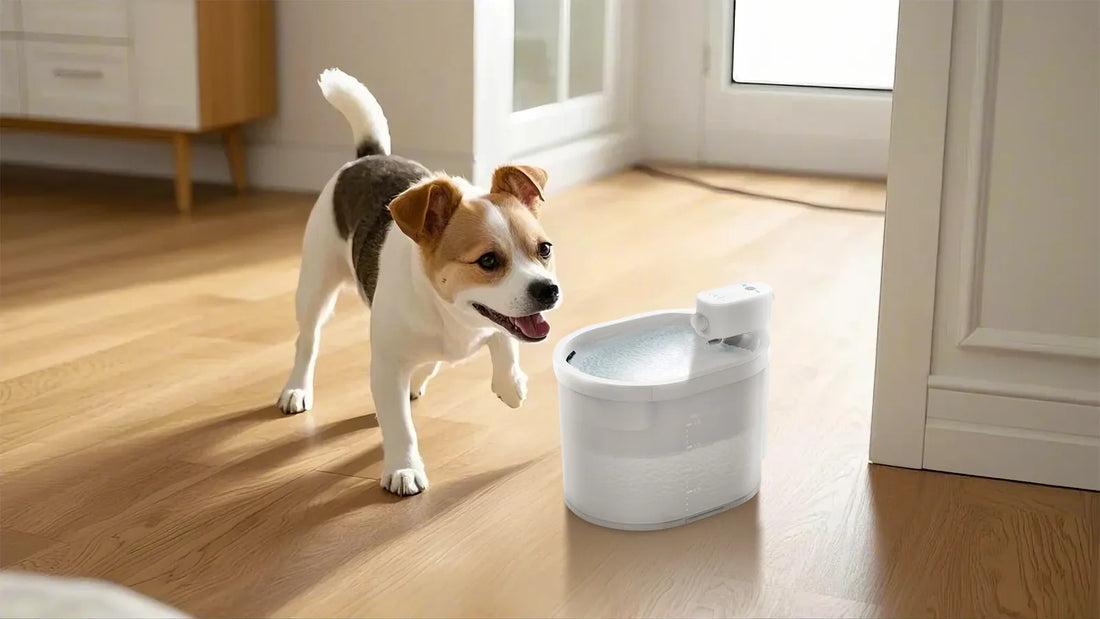If you’ve noticed your dog drinking a lot of water recently, you’re not alone. Many pet owners observe this behavior and wonder whether it’s a cause for concern. While increased water intake can be normal in certain situations, it can also signal underlying health issues. Understanding the reasons behind this behavior is crucial for ensuring your furry friend’s well-being.
Normal vs. Excessive Water Consumption in Dogs
Dogs, like humans, need water to survive. The amount of water a dog drinks can vary based on factors such as size, age, activity level, and diet. On average, a healthy dog should drink about 1 ounce of water per pound of body weight daily. For example, a 30-pound dog would typically drink around 30 ounces of water each day.
However, if your dog is drinking significantly more than this, it could indicate a problem. Excessive thirst, known as polydipsia, is often accompanied by increased urination. Monitoring your dog’s water intake and behavior can help you determine whether their thirst is normal or excessive.
Common Causes of Increased Water Consumption
There are several reasons why your dog might be drinking more water than usual. Some of these causes are harmless, while others require veterinary attention.
Hot Weather or Increased Activity
During hot weather or after vigorous exercise, dogs naturally drink more water to stay hydrated. This is a normal response to prevent dehydration and regulate body temperature. If your dog has been more active than usual or the weather has been particularly warm, their increased water intake is likely nothing to worry about.
Dietary Changes
Changes in your dog’s diet can also affect their water consumption. For instance, a diet high in dry kibble may lead to increased thirst, as dogs need more water to digest dry food. Similarly, salty treats or foods can make your dog thirstier than usual.
Medications
Certain medications, such as steroids or diuretics, can cause increased thirst in dogs. If your dog has recently started a new medication and you’ve noticed a change in their drinking habits, consult your veterinarian to determine whether this is a normal side effect.
Underlying Health Conditions
In some cases, excessive water consumption can be a symptom of an underlying health issue. Conditions such as diabetes, kidney disease, Cushing’s disease, and urinary tract infections can all lead to increased thirst. If your dog’s excessive drinking is accompanied by other symptoms like weight loss, lethargy, or changes in appetite, it’s important to seek veterinary care promptly.
When to Be Concerned
While occasional increases in water intake are normal, persistent or extreme thirst should not be ignored. If your dog is drinking an excessive amount of water for more than a day or two, or if you notice other concerning symptoms, it’s time to consult your veterinarian. Early detection and treatment of underlying conditions can significantly improve your dog’s quality of life.
How to Monitor Your Dog’s Water Intake
Keeping track of how much water your dog drinks can help you identify any unusual patterns. Measure the amount of water you pour into their bowl each day and note how much is left at the end of the day. This will give you a clear idea of their daily consumption. Additionally, pay attention to their behavior, such as frequent trips to the water bowl or accidents in the house.
Tips for Managing Your Dog’s Hydration
Ensuring your dog stays properly hydrated is essential for their health. Here are some tips to help manage their water intake:
- Provide fresh, clean water at all times.
- Monitor their water consumption regularly.
- Avoid giving them salty treats or foods.
- Ensure they have access to water during hot weather or after exercise.
- Consult your veterinarian if you notice any sudden changes in their drinking habits.
The Importance of Veterinary Care
If you’re concerned about your dog drinking a lot of water, don’t hesitate to seek professional advice. Your veterinarian can perform diagnostic tests to determine the cause of their excessive thirst and recommend appropriate treatment. Regular check-ups are also essential for maintaining your dog’s overall health and catching potential issues early.
Understanding why your dog is drinking a lot of water can help you provide the best care for your furry companion. Whether it’s a simple case of hot weather or a sign of a more serious condition, staying informed and proactive is key. Keep an eye on their behavior, monitor their water intake, and consult your veterinarian if you have any concerns. Your dog’s health and happiness depend on it!














